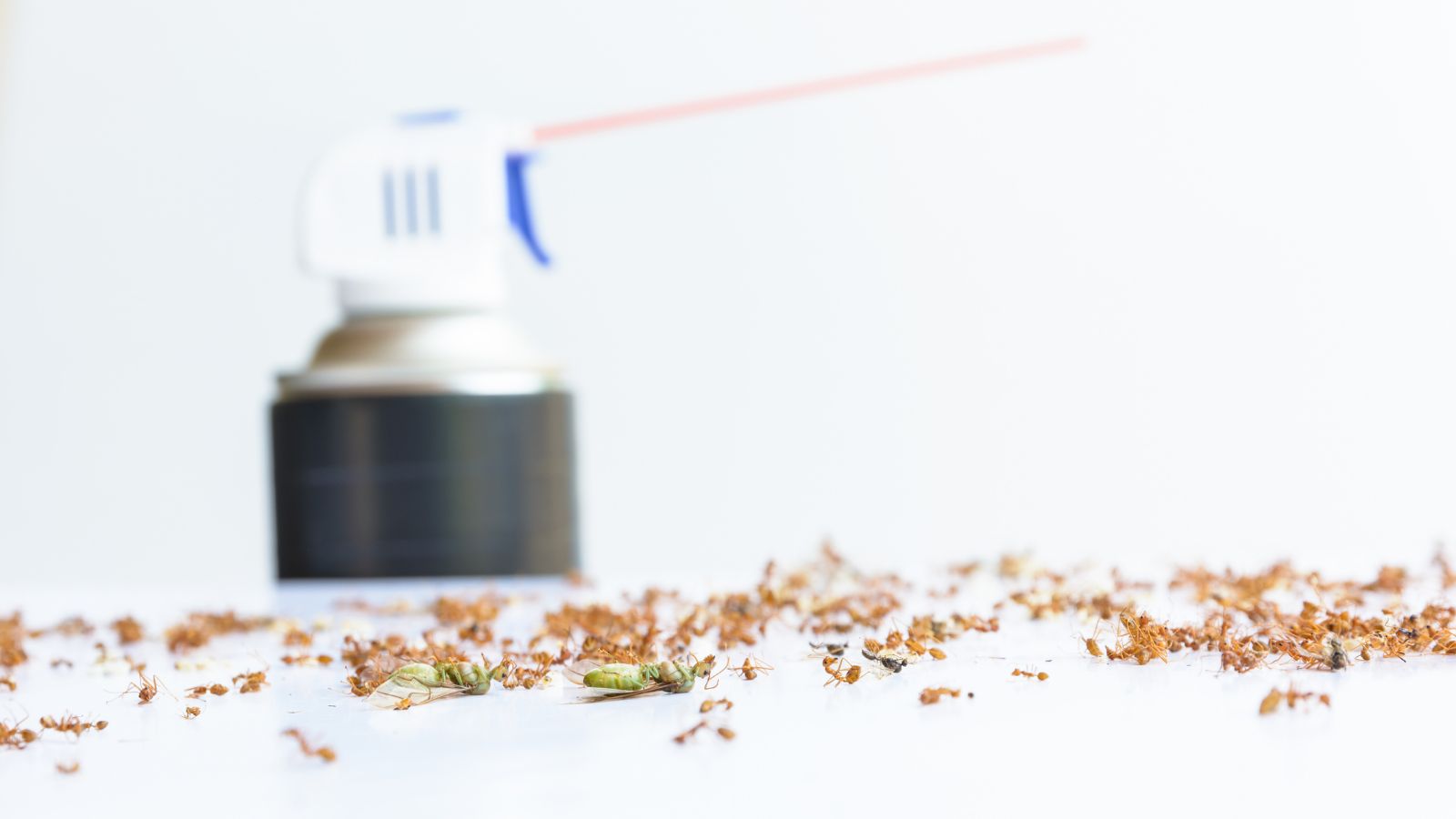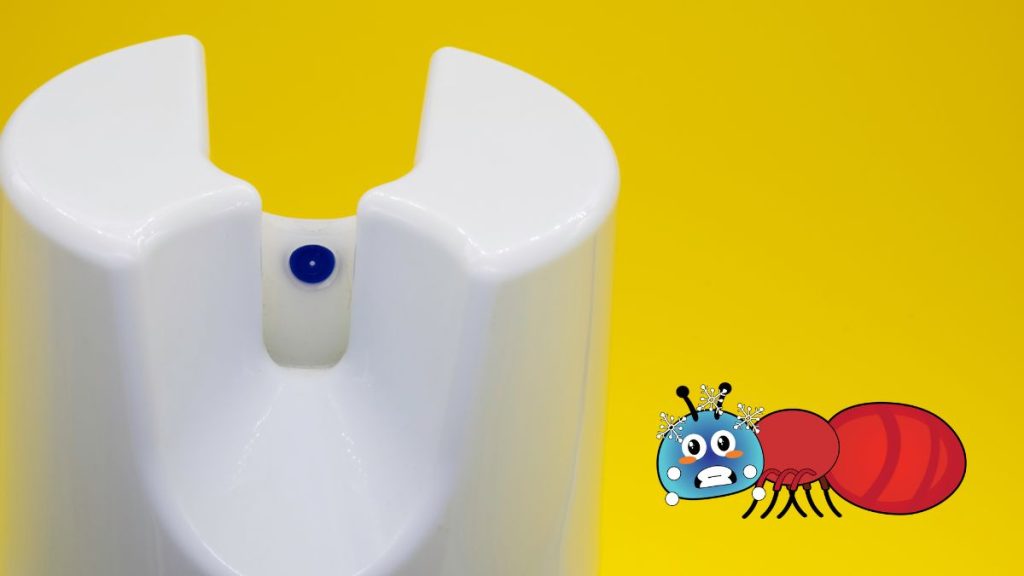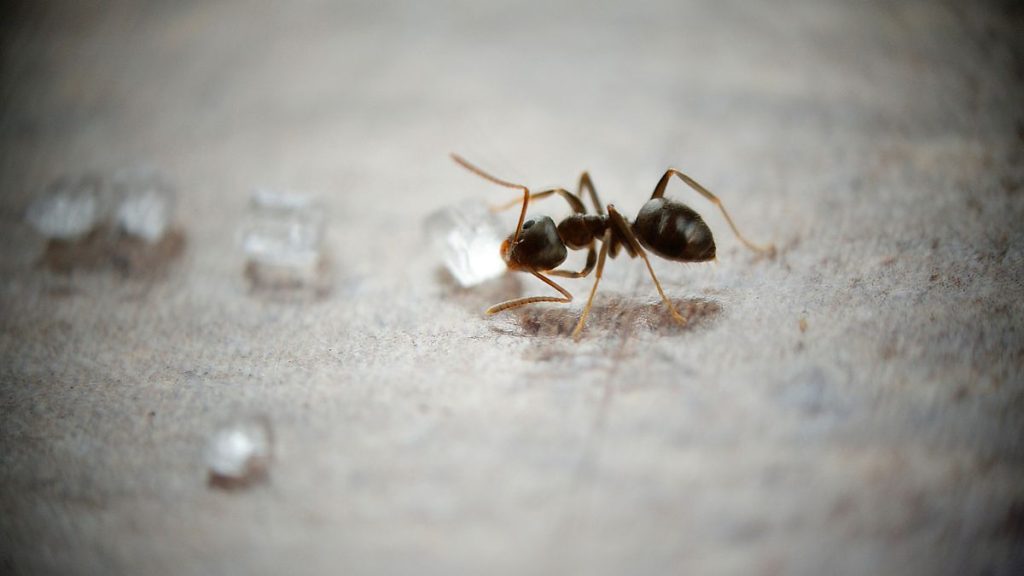Does Spraying Lysol Kill Ants Effectively?

You might be familiar with Lysol as the go-to disinfectant for eliminating germs like viruses and bacteria around your home.
But when ants decide to visit, the temptation to grab that same bottle of Lysol to combat these unwelcome guests can be strong.
Many of you have considered—or perhaps already tried—using Lysol wipes or spray to clear out an ant infestation, attracted by the smell of food and determined to make your space theirs.
Ants communicate through pheromones and can quickly turn a small problem into a full-blown colony affair.
In your ongoing quest to keep pets safe and your home clean, you might wonder if Lysol, a product designed to tackle harmful microorganisms, can effectively disrupt these tiny invaders on contact.
Let’s examine whether Lysol can indeed kill ants and how it fares as a solution in the fight against these persistent pests.
Active Ingredients in Lysol
Understanding Surfactants
Your go-to Lysol product carries key surfactants such as alkyl dimethyl benzyl ammonium saccharinate and ethanol.
These substances essentially strip away the waxy layer that coats an ant’s exterior and disrupts cellular membranes.
Imagine it as stripping away the ant’s armor, leaving it vulnerable.
Impact on Ants
The presence of ethanol in Lysol, a type of alcohol, is particularly effective against ants.
It rapidly evaporates and, in doing so, damages the ant’s fragile exoskeleton.
As for quaternary ammonium, it is not bleach but another strong agent that targets the creatures.
Repellent Qualities
Other than the main active components, fragrance compounds like octanal are included in Lysol.
While their primary purpose is to add a specific scent, they also play a role in keeping ants at bay by offering an undesirable environment for them.
Does Lysol Kill Ants Effectively?

Immediate Impact on Ants
When you spray Lysol directly on ants, it can be deadly because of the surfactants it contains.
These agents disrupt the insects’ delicate exoskeleton, leading to dehydration and death.
Therefore, in terms of immediate contact, Lysol does have the capability to kill ants.
Limitations in Colony Control
Despite its ability to kill on contact, Lysol is not designed as an ant killer and it’s not your best option for dealing with an entire ant infestation.
It isn’t potent enough to eradicate an ant colony or destroy their nest.
The scent and chemicals might cause ants to scatter and establish new trails, but simply spraying Lysol won’t prevent these determined insects from coming back.
Longevity and Effectiveness
The residual effect of Lysol is minimal; once it dries, it’s unlikely to deter or kill any new ants that venture into your space.
Because ants breathe through spiracles on their bodies, the vapors from Lysol don’t affect them as much and the solution’s fragrance will only confuse them temporarily.
Alternative Solutions
For more sustained ant control, you might want to consider using ant baits or insecticides specifically formulated to target ants.
These products usually contain poisons that worker ants carry back to their nest, effectively killing the eggs and the rest of the colony, offering a more comprehensive solution than a disinfectant like Lysol.
Using Lysol Against Ants Safely
Preparing to Use Lysol
Before you start, it’s important to open your windows and switch on any ventilation fans.
This helps to remove the fumes quickly after spraying Lysol. Always wear gloves to protect your hands from the disinfectant.
Application Tips
When using Lysol to kill ants, aim to spray them directly using a spray bottle.
This ensures that the ants come into contact with the disinfectant, which is necessary to effectively kill them.
However, be cautious not to spray near food-preparation areas to prevent contamination.
After Spraying Precautions
Keep pets and children away from areas where you’ve used Lysol until it’s completely dry.
This is crucial to avoid skin contact or accidental ingestion, which can be harmful. If you’ve used more Lysol than needed, make sure to wipe the excess away.
What to Avoid
Never spray Lysol into small spaces such as cracks and corners where gases could become trapped and pose a risk.
Lysol should not be used as an insecticide outdoors or in an unventilated space. Lastly, check the Lysol product label to ensure it’s safe for the surfaces in your home.
Recommendations for Ant Control

Identify and Block Entry Points
To keep ants at bay, your first step is to locate and seal any cracks or openings through which they might be entering.
Regularly inspect the perimeter of your home for potential ant access points and use a suitable sealant to block their entry.
Cleanliness is Key
Ensure your kitchen and dining areas are free of food remnants, as even small crumbs can attract ants.
Be vigilant with your cleaning routine; wipe down surfaces and sweep floors to remove any traces of food.
Pay special attention to kitchen trash cans and any food storage areas to minimize ant appeal.
Use Effective Ant Remedies
Instead of reaching for household cleaning products like Lysol, consider utilizing residual sprays, baits, or natural remedies such as diatomaceous earth, which target ants more effectively.
These substances can disrupt pheromone trails and interfere with the ant’s exoskeleton, making it harder for them to survive and breed.
For best results, place ant baits near nests or trails and let the worker ants carry the poison back to the colony.
If you’re dealing with a significant ant infestation, consult a pest control professional who can provide a comprehensive and tailored solution.